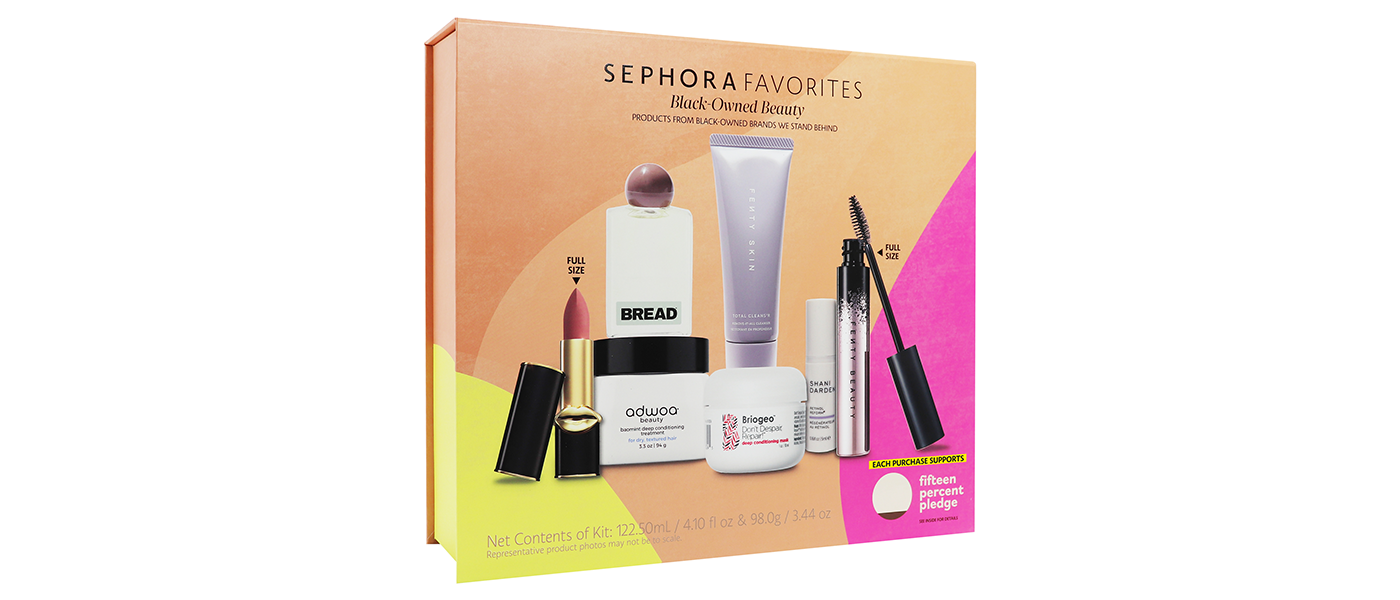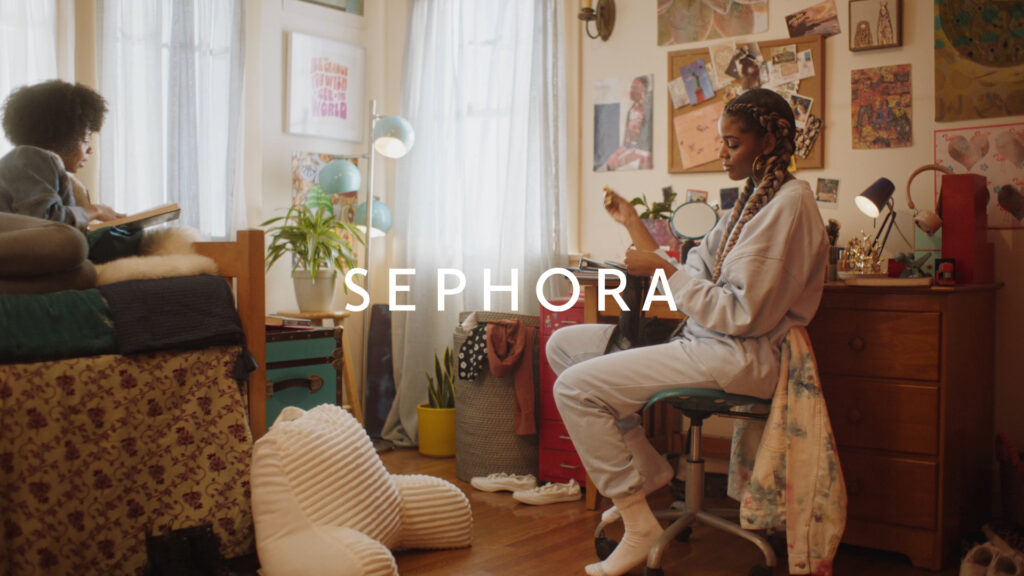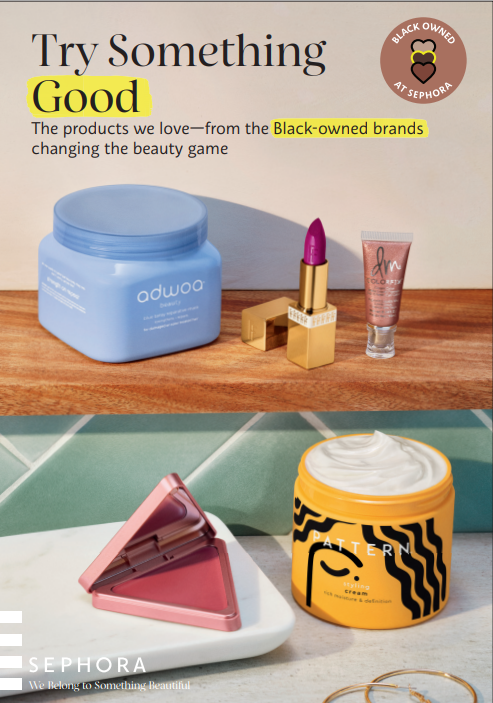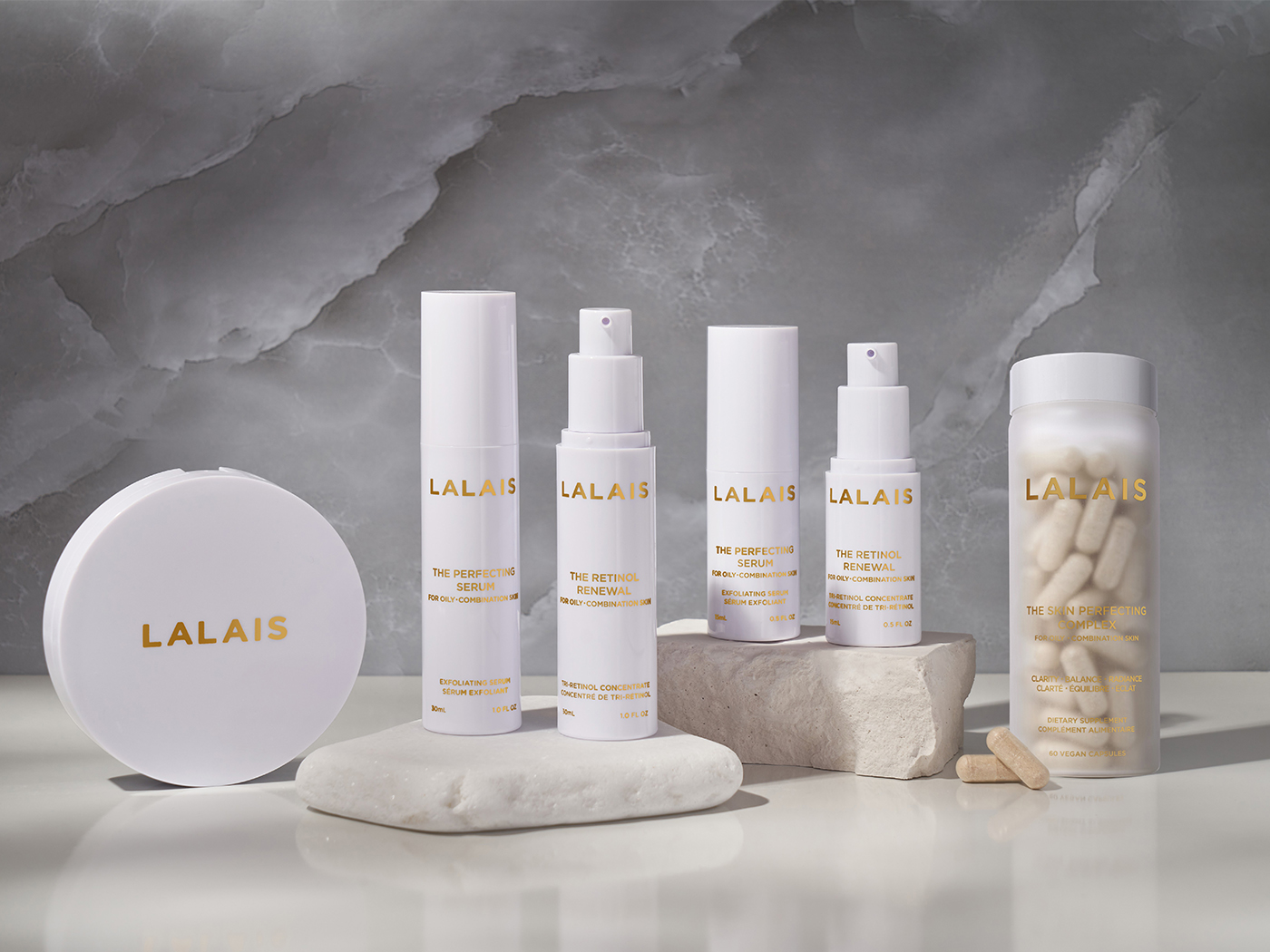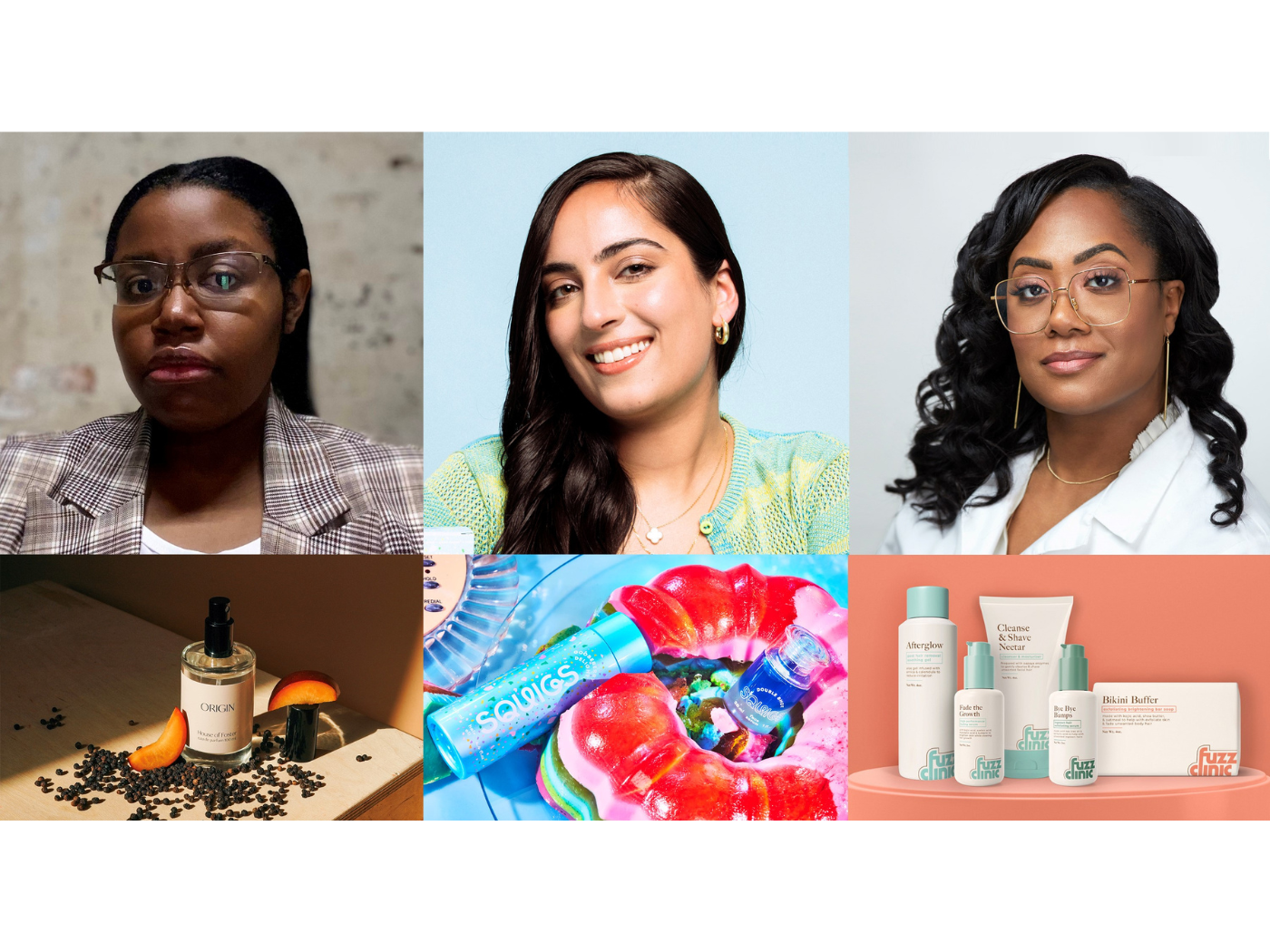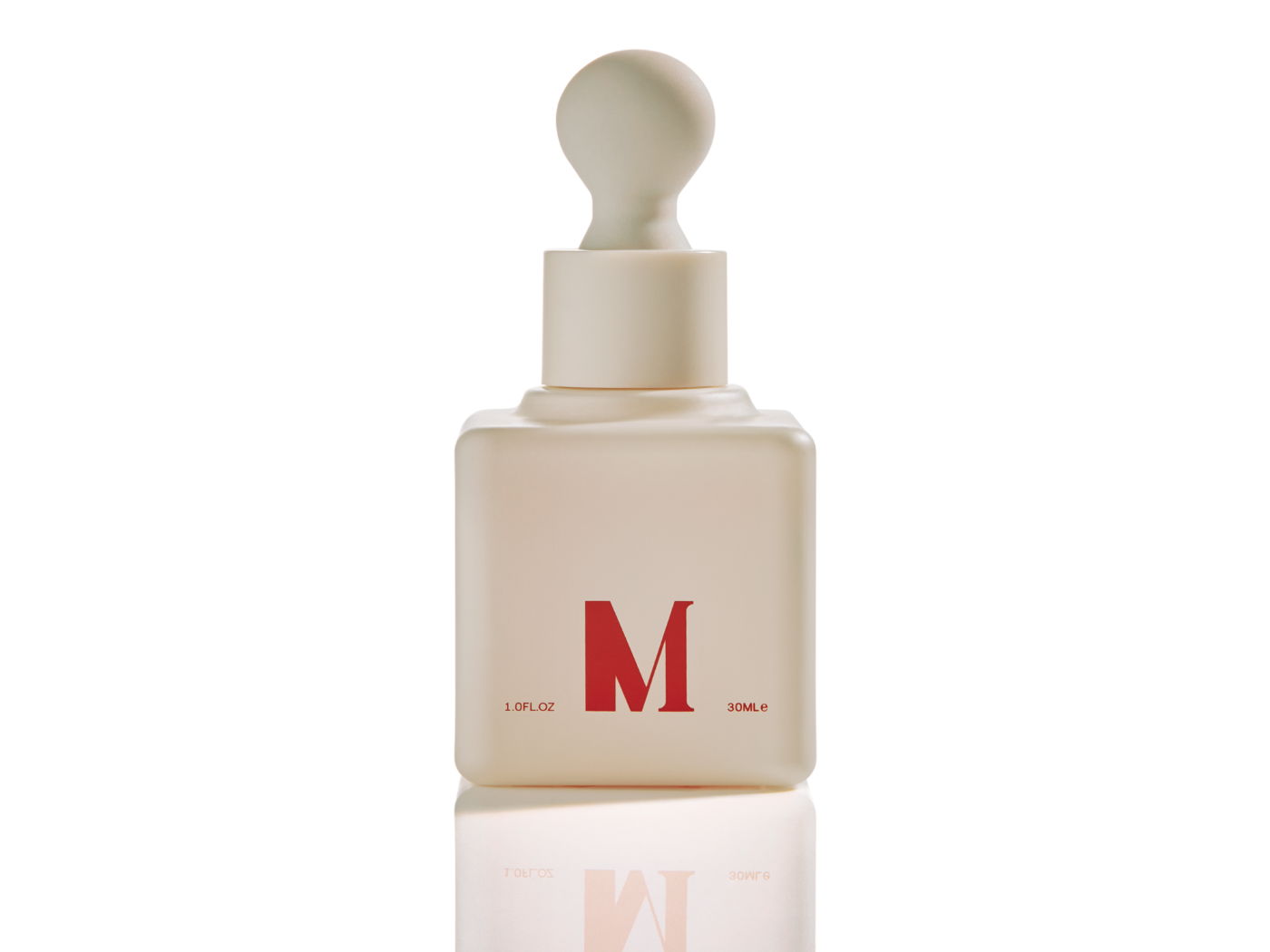Sephora unveiled several initiatives this week in its ongoing support of Black-owned brands during a wide-ranging virtual presentation, “A Conversion on Black Beauty with Sephora.”
Several industry figureheads including Sephora’s Deborah Yeh, Chief Marketing Officer; Myiesha Sewell, Beauty Director; Priya Venkatesh, Senior Vice President of Merchandising for Skin Care and Hair; and Celessa Baker, Vice President of Brand Marketing Makeup and Hair joined the virtual discussion, with Desiree Verdejo, Founder and CEO of Hyper Skin, and Aurora James, founder of The Fifteen Percent Pledge and Brother Vellies. They shared their personal stories on the importance of bringing Black-founder stories to the forefront.
“As a global force in beauty, you’ve seen Sephora share a range of stories from K-beauty to Clean Beauty,” said Deborah, explaining that Sephora now hopes to be a megaphone for Black innovation. “Our conversation today celebrates Black beauty and Black founders who are supporting the industry. We should give credit where credit is due.”
The cornerstone of the discussion was the reveal of Sephora’s first-ever Black-owned brands campaign to further recognize and applaud the contributions that Black culture and Black innovators have made in beauty. Brands that will be spotlighted include: Pattern, Briogeo, Adwoa, Bread Supply, Fenty Beauty, Pat McGrath Labs, Grace Eleyae, Danessa Myricks and Fashion Fair.
The campaign’s salient message is to spread the knowledge that many mainstream beauty brands, tools and products are rooted in black culture. The point will be heavily touted on Sephora’s biggest stage—its store windows—along with its home page, emails and social platforms. With the purchase of any product created by a Black-owned brand, (minimum $80 spend) shoppers will receive access to digital content featuring Black influencers, creators and beauty brand founders.
“We want to showcase and immerse shoppers in these brands,” said Celessa, adding that there will be quarterly campaigns to drive awareness of Black-owned brands with a dedicated landing page.
The campaign comes on the heels of a short film released earlier this month and shown to help kick off the discussion called “Black Beauty is Beauty.” The film gives credit to Black beauty innovations that have become mainstream but not always acknowledged such as beat faces and cut creases.
“Many of the tools, techniques, iconic looks and trends in beauty exist because of the Black community, driven by Black beauty needs and innovation,” said Priya. “However, these contributions have historically been underrecognized or for most, unknown. At Sephora, we want to help move the conversation forward, bringing awareness and education surrounding the impact of Black beauty in our daily lives. Through this campaign, we aim to make beauty a more welcoming, supportive, and collaborative space, for all.”
Dovetailing with the new campaign is the retailer’s first ever Black-owned Brands Favorites Kit which goes on sale September 14. The proceeds will go to the 15 Percent Pledge. Adwoa beauty, Bread Beauty Supply, Briogeo, Fenty Beauty, Fenty Skin, Pat McGrath Labs and Shani Darden Skin Care are among the brands in the debut collection.
The 15 Percent Pledge founder Aurora acknowledged Sephora as one of the first retailers signing on to commit 15 percent of shelf space to Black-owned businesses (to match the population of Black people in the United States) in June of 2020 as well as her first sponsor for a Brothers Vellies presentation.
Her call to action is for not only companies but consumers to look at small changes they can make in their lives beyond just one-time donations. “Donations are great, but we can do more in our own lives and also ask the companies we love to support this movement. We are hearing from companies that the 15 Percent Pledge is possible the largest financial movement and driver for economic change for the Black community in the history of this country.” Almost 400 companies have already benefitted from the pledge.
Sephora isn’t just promising change; the retailer is making it. Since taking the groundbreaking or as she calls it “shelf breaking” pledge, Priya said Sephora has been hard at work making the it a reality in conjunction with a 15 Percent Merchant Task Force committed to finding Black-owned brands.
In June of 2020, the retailer carried eight Black-owned brands. “I am happy to say by the end of 2021 we will have doubled our count [of Black-owned brands] and the hair category is on track for hitting 15 percent commitment by the end of the year.”
As of July 2021, the Black-owned brands expansion offer includes Adwoa Beauty, Bread Beauty Supply, Briogeo, Danessa Myricks Beauty, Fenty Beauty, Fenty Skin, FORVR Mood, Grace Eleyae, KNC Beauty, LYS Beauty, Pat McGrath Labs, Rose Ingleton MD, Shani Darden Skin Care, Sunday II Sunday, Topicals and Qhemet Biologics. Fashion Fair and Hyper Skin are among brands slated to be added in the fall.
The conversation also accentuated a fact Black-owned brands struggle with garnering consumer acceptance beyond Black consumers. “How do we position our products so that you know they are for everybody, not just people who look like the founder,” questioned Myiesha.
Desiree stepped in to tackle the issue. “Hyperpigmentation [which her brand addresses] is a concern for anyone. For me I feel our brand is for everyone and we speak that on our own platforms and empower Sephora to share that message through image and storytelling. Customers are savvy. They know ingredients. I think you will find some brands are for everyone; some are for a certain community. The Sephora customer gets it.”
Celessa added, “Just because it is Black-founded doesn’t mean it doesn’t solve problems for others. As a retailer there are moments we are going to celebrate and shout from the rooftop ‘these are Black-founded brands meeting specific or underrepresented needs.’ There are also moments when we are saying this product is good for needs whether you are Black, white or Asian.”
Myiesha said she is finding a groundswell of support across all ethnicities for Black created lines, especially since many people experience dry hair, skin and hyperpigmentation.
No matter the shopper, Sephora is dedicated to fighting shopper bias that has been validated from research revealing shoppers believe brands from people of color are underspaced, Sephora pivoted its lauded Accelerate Incubator Program to focus on BIPOC founders to maintain a steady pipeline of brands. Sephora used the conversation event to announce applications for Accelerate 2020, which creates a foundation, network and ecosystems for brands to launch and thrive, are now live through September 20.
Desiree, in fact, is a graduate of the program that helped her fine-tune her Hyper Skin launch. She was one of eight companies that went through the program and will be added to Sephora’s mix this year and into the spring. Aurora served as a mentor to this past year’s cohort.
The challenge of shade matching was also a topic of discussion, especially for different skin tones. Celessa revealed a new and better Sephora Color iQ foundation matching service that is coming to stores featuring upgraded AI technology.
According to the panelists, current shade matching in the industry only accounts for depth and undertone, while Sephora’s new Color iQ technology accounts for depth, undertone and saturation to recommend the best products that closely match clients’ skin tones. Sephora’s Color iQ leverages a cutting-edge proprietary algorithm that provides clients with a dataset of 10,000-plus skin tones, suitable across all shade ranges. Sephora currently offers 8,000 foundation SKUs. “This tool is really going to enable our beauty advisors to enable our client to find their perfect match within minutes,” Celessa said.
